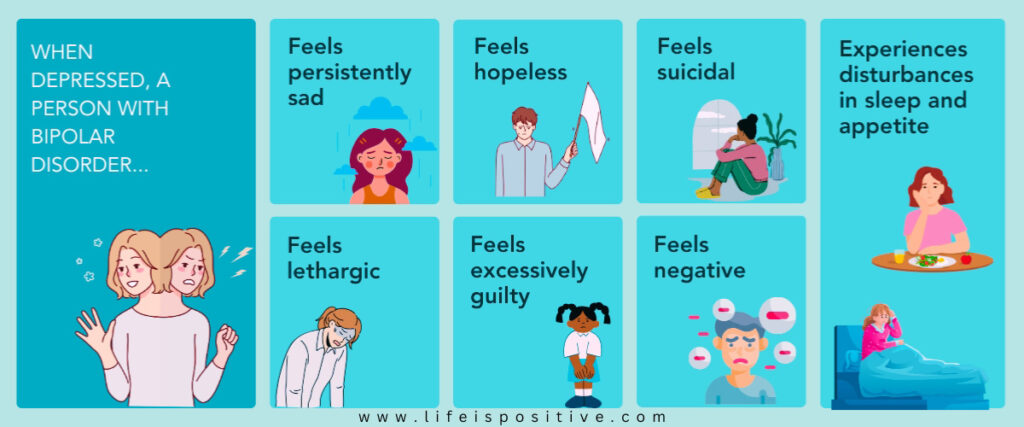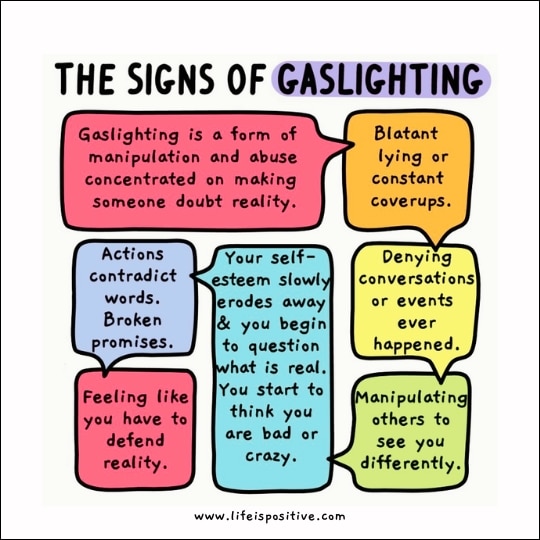|
Getting your Trinity Audio player ready...
|
We toss around psychological terms in our daily talks, but let’s be honest, we don’t always get them right. So, let’s clear up any mix-ups and explore 52 psychology terms you might be using incorrectly.
Nailing these psychology terms can make you sound sharper and give you a deeper understanding of yourself and those around you.
1. Obsessive-Compulsive Disorder (OCD)
We often hear people say they’re “so OCD” when they like things neat. But OCD is a serious condition involving obsessive thoughts and compulsive actions that disrupt daily life.
2. Schizophrenia
Schizophrenia isn’t about having multiple personalities. It’s a severe mental disorder characterized by distorted thinking, perceptions, and emotions.
3. Psychopath
A psychopath is not just someone who commits crimes. It’s a personality disorder marked by persistent antisocial behavior, impaired empathy, and bold, disinhibited traits.
Read: Signs Of A Psychopath: 15 Warning Signs You Shouldn’t Ignore
4. Antisocial
Being antisocial doesn’t mean you just don’t like parties. It’s a term used for a personality disorder characterized by a disregard for social norms and the rights of others.
5. Bipolar Disorder
People often say they’re “bipolar” when they have mood swings. Bipolar disorder involves extreme mood swings, including emotional highs (mania) and lows (depression), that affect daily functioning.
6. Panic Attack
A panic attack is more than just feeling stressed. It’s an intense episode of fear or anxiety that peaks within minutes and includes physical symptoms like a racing heart.
7. Introvert
An introvert isn’t necessarily shy or antisocial. Introverts recharge by spending time alone and may enjoy social activities, but they need downtime afterward.
Read: How to Overcome Introversion
8. Extrovert
Extroverts aren’t always the life of the party. They gain energy from social interactions but can also enjoy solitude.
9. Addiction
Addiction isn’t just a strong desire for something. It’s a chronic disorder with biological, psychological, social, and environmental factors influencing its development and maintenance.
10. Narcissist
A narcissist isn’t just someone who loves themselves. Narcissistic Personality Disorder involves a pattern of grandiosity, a need for admiration, and a lack of empathy.
Read: Why Do Empaths Attract Narcissists?
11. Borderline Personality Disorder (BPD)
BPD is often misunderstood as being “crazy” or unstable. It involves emotional instability, intense relationships, and an unstable self-image.
12. Projection
Projection isn’t just accusing others of what you’re guilty of. It’s a defense mechanism where you attribute your own unacceptable thoughts to others.
13. Cognitive Dissonance
Cognitive dissonance isn’t just feeling conflicted. It’s the mental discomfort experienced when holding two contradictory beliefs or values.
14. Gaslighting
Gaslighting isn’t just lying. It’s a form of psychological manipulation where the abuser tries to make the victim doubt their perception of reality.
15. Dissociation
Dissociation isn’t daydreaming. It’s a disconnection between thoughts, identity, consciousness, and memory, often due to trauma.
16. PTSD
Post-Traumatic Stress Disorder (PTSD) isn’t just being upset after a bad event. It’s a mental health condition triggered by experiencing or witnessing a traumatic event, leading to flashbacks, nightmares, and severe anxiety.
17. Mania
Mania isn’t just extreme happiness. It’s a state of heightened mood, energy, and activity levels that can be so intense it disrupts daily life.
18. Delusion
A delusion isn’t just a wrong belief. It’s a firmly held belief despite clear evidence to the contrary, often seen in severe mental illnesses.
19. Phobia
A phobia isn’t just a fear. It’s an irrational, intense, and persistent fear of certain situations, activities, things, or people.
20. Regression
Regression isn’t just acting immature. It’s a defense mechanism leading someone to revert to a previous stage of development in response to stress.
21. Resilience
Resilience isn’t just being tough. It’s the ability to mentally or emotionally cope with a crisis and return to pre-crisis status quickly.
Read: How Can You Turn Obstacles into Opportunities?
22. Repression
Repression isn’t just forgetting something bad. It’s a defense mechanism where unpleasant thoughts are unconsciously pushed out of conscious awareness.
23. Somatization
Somatization isn’t faking illness. It’s the expression of psychological distress through physical symptoms.
24. Hypochondria
Hypochondria isn’t just being overly worried about health. It’s an excessive preoccupation with having a serious illness despite medical reassurance.
25. Anxiety
Anxiety isn’t just feeling worried. It’s a persistent, excessive worry that interferes with daily activities.
Read: Things in Your Home Triggering Your Anxiety
26. Depression
Depression isn’t just feeling sad. It’s a serious mood disorder causing persistent sadness and loss of interest, affecting daily functioning.
27. Compulsion
A compulsion isn’t just a strong urge. It’s a repetitive behavior driven by an irresistible urge, often in response to an obsessive thought.
28. Hallucination
A hallucination isn’t just imagining something. It’s a perception in the absence of external stimuli, such as hearing voices or seeing things that aren’t there.
29. Paranoia
Paranoia isn’t just being suspicious. It’s an irrational and persistent feeling that people are ‘out to get you.’
30. Affect
Affect isn’t just a feeling. In psychology, it refers to the observable expression of emotion.
31. Ego
The ego isn’t just about self-esteem. In Freudian terms, it’s the part of the personality that mediates between the desires of the id, the morals of the superego, and reality.
32. Id
The id isn’t just about basic desires. It’s the part of the personality that contains our primitive impulses and drives.
33. Superego
The superego isn’t just about morals. It’s the part of the personality that represents internalized ideals and provides standards for judgment.
34. Denial
Denial isn’t just refusing to accept reality. It’s a defense mechanism where a person refuses to acknowledge a painful reality.
35. Displacement
Displacement isn’t just misdirecting emotions. It’s a defense mechanism where emotional impulses are redirected from a dangerous object to a safer one.
36. Sublimation
Sublimation isn’t just channeling energy. It’s a defense mechanism where unacceptable impulses are transformed into socially acceptable actions.
37. Introjection
Introjection isn’t just adopting others’ beliefs. It’s a defense mechanism where a person internalizes the ideas or voices of other people.
38. Isolation
Isolation isn’t just being alone. It’s a defense mechanism where a person separates emotions from thoughts or experiences.
39. Rationalization
Rationalization isn’t just making excuses. It’s a defense mechanism where controversial behaviors or feelings are justified in a seemingly rational manner.
40. Intellectualization
Intellectualization isn’t just overthinking. It’s a defense mechanism where reasoning is used to block confrontation with an unconscious conflict.
41. Projection
Projection isn’t just blaming others. It’s a defense mechanism where one’s own unacceptable thoughts are attributed to others.
42. Reaction Formation
Reaction formation isn’t just doing the opposite. It’s a defense mechanism where a person behaves in a way opposite to what they truly feel.
43. Fixation
Fixation isn’t just being obsessed. In Freud’s theory, it’s a persistent focus on an earlier psychosexual stage.
44. Transference
Transference isn’t just transferring feelings. It’s a phenomenon where emotions originally associated with one person are unconsciously redirected to another.
45. Countertransference
Countertransference isn’t just a therapist’s feelings. It’s the emotional reaction of the therapist towards the client, influenced by the therapist’s own background.
46. Libido
Libido isn’t just sexual desire. In Freudian theory, it’s the energy derived from sexual instincts.
47. Catharsis
Catharsis isn’t just a release. It’s the process of releasing, and thereby providing relief from, strong or repressed emotions.
48. Archetype
An archetype isn’t just a symbol. In Jungian psychology, it’s a universal, archaic symbol and image that derives from the collective unconscious.
49. Collective Unconscious
The collective unconscious isn’t just shared memories. It’s a part of the unconscious mind shared among beings of the same species, according to Jung.
50. Self-Actualization
Self-actualization isn’t just about achieving goals. It’s the realization or fulfillment of one’s talents and potentialities, considered as a drive or need present in everyone.
51. Unconditional Positive Regard
Unconditional positive regard isn’t just being nice. It’s an attitude of total acceptance toward another person, advocated by Carl Rogers.
52. Flow
Flow isn’t just being in the zone. It’s a mental state of being fully immersed, energized, and focused on an activity, as described by Mihaly Csikszentmihalyi.
Final Thoughts On Psychology Term
We’ve all had those moments where we toss around terms, thinking we know what they mean, only to find out we were a bit off.
Hopefully, this list has cleared up some of those common misunderstandings.
Using the right psychology terms not only boosts your smartness quotient but also helps you get a better grip on human behavior.
It can make your conversations deeper and more insightful. If you found this post helpful and enjoyed reading it, why not share it with your friends and family?
Let’s spread the knowledge and get better at using these terms correctly together. Stay curious, keep learning, and let’s keep exploring the fascinating world of psychology.
For more empowering content, connect with our vibrant community here ➡️ Social Media.



